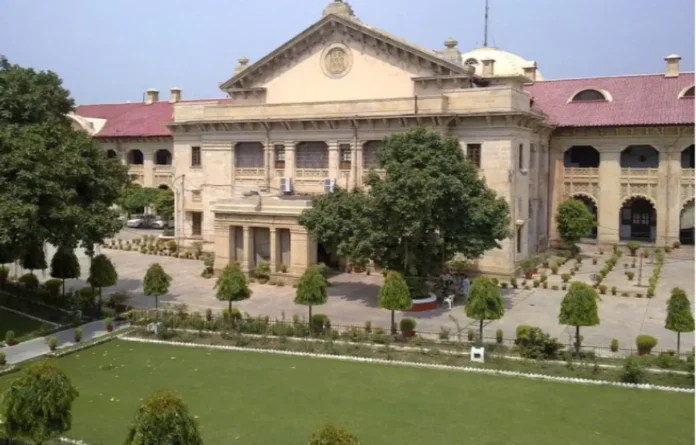The Allahabad High Court while dismissing a petition observed that in areas of contractual disputes, parties have to approach the civil courts or go for arbitration. The writ court would go into it only in exceptional circumstances, when the outstanding payments are admitted by the respondents, enter into the arena and pass a writ of mandamus and in no other case.
The Division Bench of Justice Shekhar B Saraf and Justice Vipin Chandra Dixit passed this order while hearing a petition filed by M/S Annapurna Construction Co.
The petition has been filed under 226 of the Constitution of India seeking issuance of a writ of mandamus directing the State respondent to release the payment for the contractual work done by the petitioner with regard to the work orders given by the Respondent No 4/The Project Manager, Slum Urban Development Authority, on behalf of State Government under the contract.
The facts of the case are that the petitioner is a registered contractor with the Public Works Department, Kanpur, who was awarded work for the construction of residence under the Basic Services to the Urban Poor Yojana at Kishanpur, Kanpur Nagar, which was introduced as a reform under the Jawaharlal Nehru National Urban Renewal Mission, launched by the Union Government for urban poor under the slum development program. The funding pattern for this scheme was, 30% participation by the Union Government and 70% by the State Government.
By work orders dated February 3, 2014 and March 4, 2014, the petitioner was tasked with the construction of houses by the Respondent No 3 under the said Yojna in Kishanpur, Kanpur Nagar.
The petitioner completed the construction work within the stipulated period under the supervision of the Project Manager (Respondent No 4). The work was verified through spot visits by Respondent No 3 and the Project Manager.
Upon satisfaction, the houses were handed over to allottees in multiple phases between June 18, 2014 to June 17, 2015, with proper documentation maintained and submitted to respondent authorities.
Bills amounting to Rs 15,81,540 were submitted on June 17, 2014, which were duly scrutinized and passed by the concerned authorities. Additionally, the petitioner claims that a security deposit of Rs 96,000 remains unreleased.
The petitioner was also directed to complete additional work (sewer line, window fitting, and brick flooring) without a formal work order. Despite completion and verification of this work, neither was a work order created nor bills processed. Completion certificate was issued on December 27, 2019.
Multiple representations were made by the petitioner since October 16, 2015, but payment remains pending. Through a letter dated March 4, 2020, the unit in-charge informed that old payments cannot be processed as per state level authorities.
The Court is of the view that there is dispute of fact with regard to the payment having been made for execution of the work.
Counsel appearing on behalf of petitioner submitted that the payment of work and security amount has not been made till date and if the payment has been made then the Respondent should show the mode of payment.
Per contra, the respondents’ counsel submitted that the payment of executed work has already been made to the petitioner but security amount has been retained due to some shortcomings found in the executed work.
The Court noted that,
The Supreme Court in the case of Kerala SEB v Kurien E Kalathil reported in (2000) 6 SCC 293 has held that writ court is not the proper forum for resolution of disputes in contractual matters.
The Supreme Court in a recent case of Union of India v Puna Hinda reported in (2021) 10 SCC 690 has further held that the jurisdiction of High Court under Article 226 of the Constitution of India is wide, but pure contractual matters in field of private law, having no statutory flavour, are better adjudicated upon by forum agreed to by parties. Dispute could not be raised by way of a writ petition on disputed question of facts.
The Court observed that,
In the factual matrix, the petitioner has not been able to bring on record any document wherein the respondent authorities have admitted that a particular sum is owed to them.
On the contrary, the respondents have disputed the claim of the petitioner in their counter affidavit. One has to keep in mind that when disputed questions of fact are present, the writ jurisdiction is not the viable forum, as such disputes cannot be decided upon bare exchange of affidavits.
Accordingly, the Court dismissed the petition.


